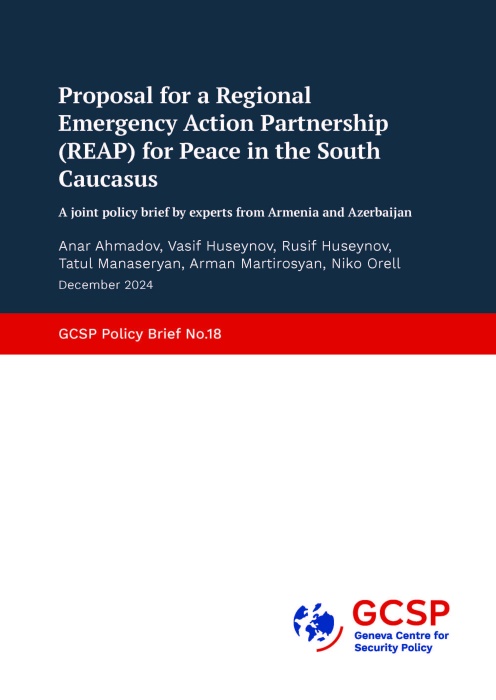Proposal for a Regional Emergency Action Partnership (REAP) for Peace in the South Caucasus
A joint policy brief by experts from Armenia and Azerbaijan
Introduction
Armenia and Azerbaijan, together with Georgia, are facing unprecedented challenges that arise from unfolding climate change and seismic risk in the South Caucasus. Placing considerable strain on economies, livelihoods, and government resources, these hazards can significantly worsen the complex geopolitical landscape and exacerbate unresolved political issues. The absence of structured and coordinated disaster response mechanisms can increase vulnerability and hamper effective crisis management, leading to avoidable loss of life, widespread suffering, and significant economic damage.
We propose the establishment of a Regional Emergency Action Partnership (REAP) in the form of a coordinated binational disaster response system. This system could enable better preparation and facilitate effective responses to disasters that are likely to have an impact across borders, ultimately saving lives through joint efforts and resource mobilisation. Including Georgia would further
strengthen such a crisis management system and solidify regional cooperation.
Furthermore, this mechanism could help catalyse political rapprochement between Armenia and Azerbaijan. Natural disasters and humanitarian crises can bring adversarial states together and unexpectedly foster collaboration. Greece and Türkiye have engaged in “earthquake diplomacy”, and despite the lack of diplomatic relations, Armenia and Türkiye briefly reopened their border to facilitate aid during the devastating 2023 Turkish earthquake (see Case Study 1 for more information). This rare example of earthquake diplomacy demonstrates how countries in seismically active regions can share common threats and opportunities for cooperation in their disaster responses. Similarly, Israel, Jordan, and Palestine have conducted joint disaster-response exercises involving 400 firefighters, medical personnel, and first responders, and the United States and Western states extended considerable support to the Soviet Union in the aftermath of the 1988 Armenian earthquake.
Disclaimer: The views, information and opinions expressed in this publication are the authors’ own and do not necessarily reflect those of the GCSP or the members of its Foundation Council. The GCSP is not responsible for the accuracy of the information.



